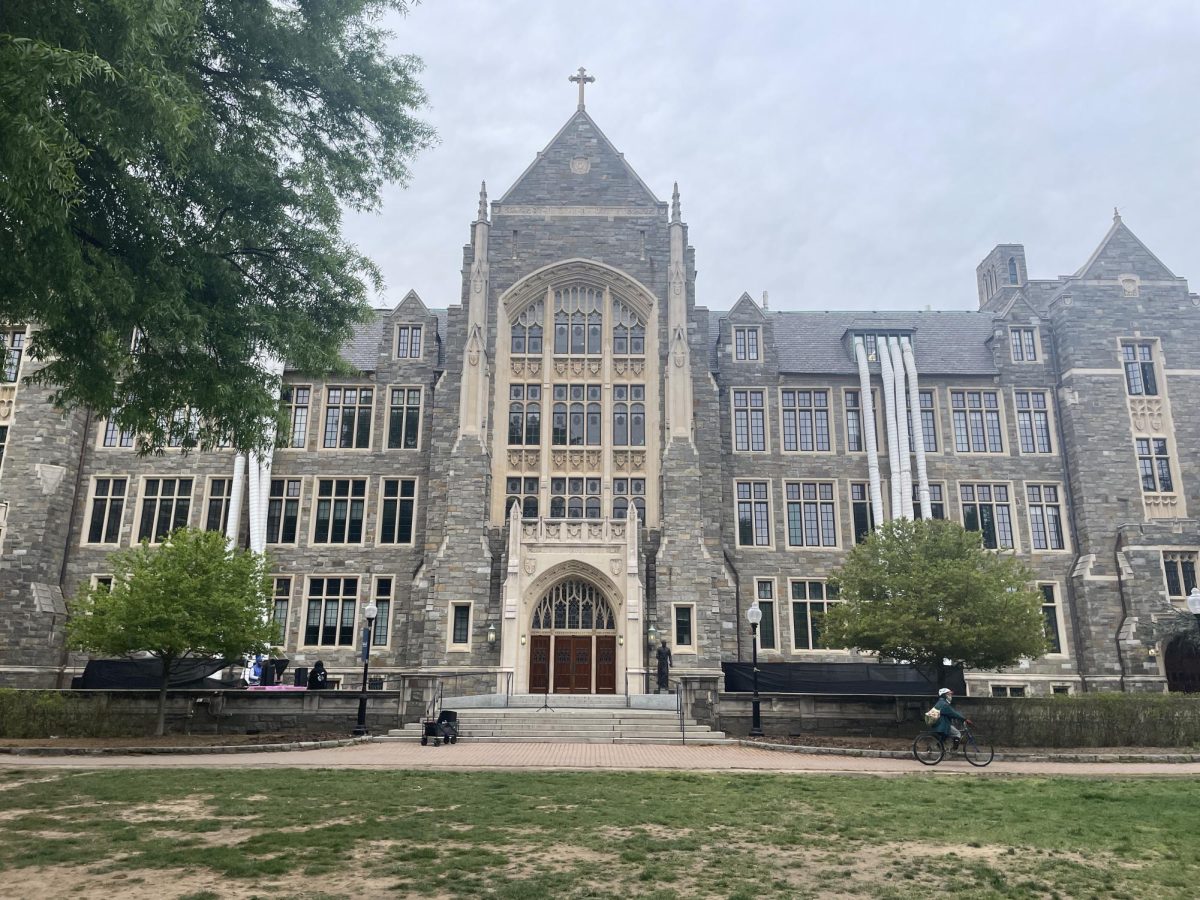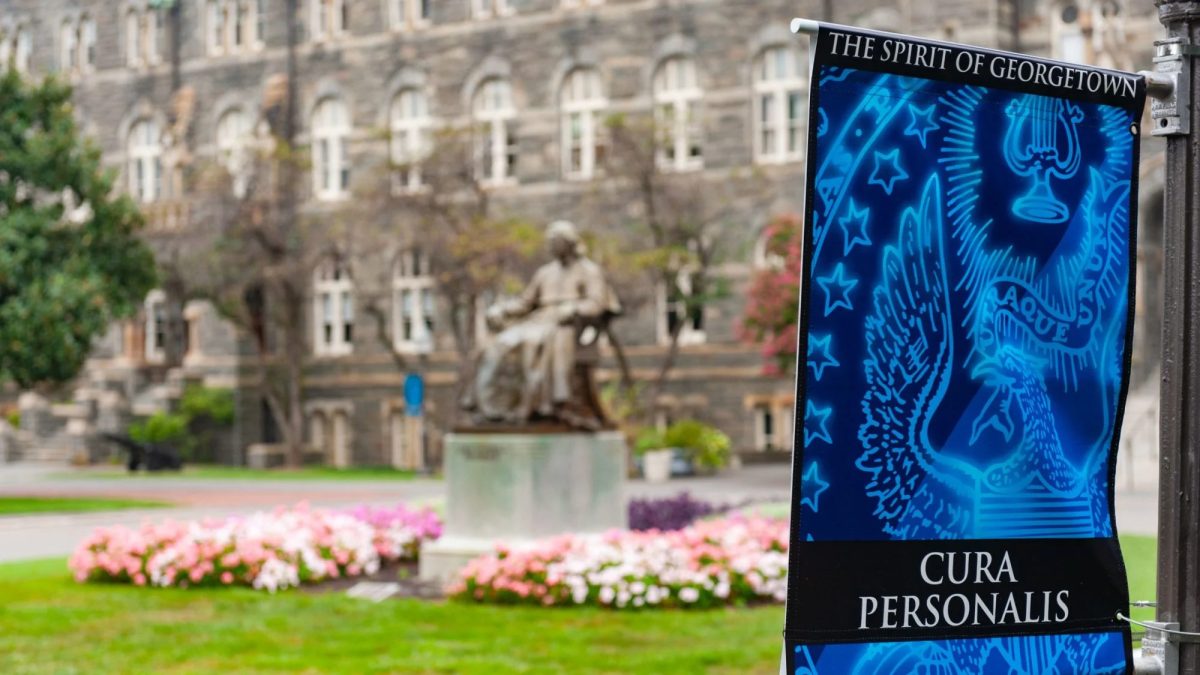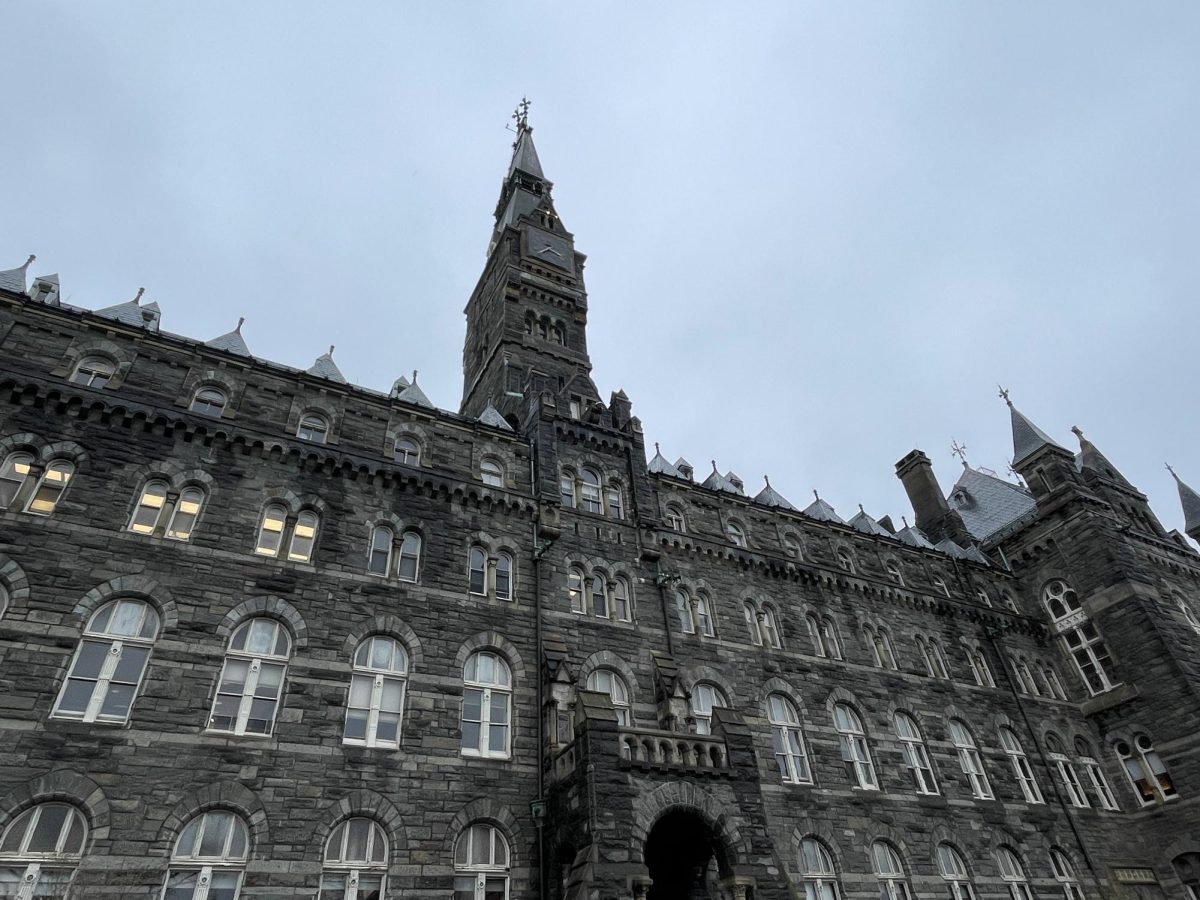It is June. The fall semester begins in two months. Students are anxious. We have nothing. The unprecedented nature of the situation is clear, but unclear are Georgetown University’s plans for the fall. Uncertainty plagues the student body, as the administration has not given any guidance on fall plans as of June 10. All that we have received is a single, unnecessarily lengthy email from President DiGioia outlining the administration’s approach to planning for fall that is simply a repetition of what administrators and deans have continuously passed as information about fall plans. Students deserve communication, accountability and honesty from the administration. We, as Georgetown University Student Association leaders, demand that the Georgetown administration share all potential situations students will face in the fall in order to receive critical input from the student body in the decision-making process.
This publicization request should not be a shock. After a series of blunders from administrators beginning in March and continuing today, they must be held accountable. While Hoyas faced confusion and chaos during spring break, other universities, including Harvard University, announced their decisions to evacuate students and embark on remote learning prior to their spring breaks. Georgetown’s indecision led to an announcement that was overturned two days later, bringing students back to campus after telling them they need not return. Although Harvard faced backlash at the time, the clear decision meant students knew what was going on and weren’t forced to return to campus multiple times.
As we recognized the variety of disadvantages students faced after the transition to online learning, we campaigned for a grading system that reflected the unlevel playing field. Yet the administration refused to consider a petition with over 1,500 undergraduate signatures, not even letting the organizers present the proposal to decision-makers. Since the rapid-fire emails of spring break, the university has been unacceptably quiet, which has been noticed by news outlets. Even an email as simple as an announcement that the housing lottery had been once again postponed was not sent out until we, as GUSA leadership, reminded the administration three days before the intended date. This lack of communication continues today as the only recourse students have with the university’s board of directors, the Student Life Working Group, is delayed past the full June board of directors meeting. This discussion will be more important than ever because of the role it will play in deciding what the fall looks like.
We are not going to allow the administration to continue ignoring the needs of students. Five students from GUSA — the president, vice president, speaker, vice speaker and a senior policy adviser — have been consulting with members of the administration to present our constituents’ concerns and address the uncertainty they face in making decisions regarding the fall. Yet we do not know more than we did when we began our series of meetings. These discussions have left us feeling frustrated. We’re frustrated because, as student advocates, it’s our job to get answers to the questions students are asking, especially right now. Our time felt wasted in these meetings, as we asked specific questions multiple times and ended up with vague, uncertain responses rather than concrete answers. The administration should not have been unprepared when we asked about possible scenarios for the fall; that was the meeting’s purpose. Even when we advocated students’ needs and presented our criteria, administrators had nothing to say because they could not tell us how our criteria fit into the unshared potential scenarios. Meanwhile, we heard rumors from professors and deans emailing students that a fall decision would come out on June 15. When we asked administrators for any kind of timeline, however, they were unable to provide even a vague prediction.
The current state of communication with students is unacceptable. There must be a greater effort to incorporate students into decision-making on fall plans. The best decisions are made through a transparent process with student input. The longer students are kept in the dark on fall planning, the less time they have to make important decisions about their future and their education. Even in our dismay with the university’s response to the situation, we still appreciate the willingness of the administration to meet with us. We are excited to be part of student input meetings the administration has promised to have with various groups on campus to address the student experience for the fall, and we appreciate that student needs were strongly considered in disbursing CARES Act funds. We hope students and the administration can proceed with mutual respect and effective communication. We deserve to have a say in what our education may look like in the fall.
Nicolo Ferretti is a senior in the School of Foreign Service.
Daniella Sanchez is a junior in the College.
Bryce Badger is a senior in the McDonough School of Business.
Eric Lipka is a sophomore in the College.
Nicole Sanchez is a junior in the School of Foreign Service.














Dane • Jun 12, 2020 at 1:50 pm
Students don’t have a lot of leverage to “demand” anything. If you really don’t like it, show it by withdrawing from school. If enough leave the university would be forced to act.